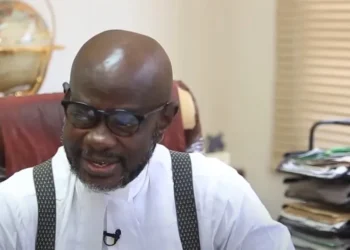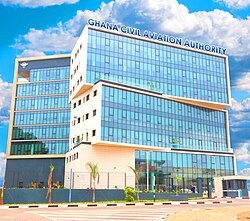In what many have described as a commendable move, the Ministry of Foreign Affairs and Regional Integration has announced a directive from the Office of the President to recall Diplomatic and Service Passports issued under the previous administration to various categories of former officials and individuals.
The recall affects a wide swath of holders, from former ministers and their spouses to businessmen, religious leaders, former political ambassadors and dependants, and officials of the National Cathedral Project, among several others.
The rationale according to the ministry’s publication is to align eligibility with the Passports and Travel Certificates Act, 1967 (NLCD 155), and safeguard the sanctity of these travel documents.
While this announcement may ruffle some feathers, particularly among those who view it as targeting past administrations, some leading civil activists view it is a much-needed step toward restoring credibility to the issuance of Diplomatic and Service Passports.
Many have argued that over time, the significance of these passports has been diluted, with reports of them falling into the hands of individuals whose roles do not align with the intended purposes of such privileges.
Professor Stephen Kwaku Asare, a Democracy and Development Fellow in Public Law and Justice at the Centre for Democratic Development (CDD-Ghana), aptly captured the essence of this exercise.
He described it as “a positive step” toward streamlining access to Diplomatic and Service Passports, emphasizing that clear eligibility criteria are essential to maintain the exclusivity and purpose of these documents.
“These privileges lose their significance when ineligible individuals gain access to them, undermining their exclusivity and purpose”, he remarked. Professor Asare strongly asserted that foreign governments and institutions may begin to question the credibility of individuals carrying such passports, leading to a decline in their diplomatic weight and respect.
He emphasized that when privileges are misused or extended beyond their rightful boundaries, the trust they command is inevitably eroded.

Diplomatic Passports: A Tool, Not a Trophy
Diplomatic and Service Passports are not meant to be ornamental symbols of prestige as they are functional tools designed to facilitate the representation of Ghana’s state interests on the international stage.
By allowing ineligible individuals to wield these passports, their intended purpose is compromised, creating avenues for misuse and, in some cases, embarrassment to the state.
Professor Asare pointed out that ensuring that only deserving individuals retain such privileges is essential to preserve their integrity and diplomatic weight.
Echoing Professor Asare’s concerns and call for fairness and transparency in the issuance of Ghana’s diplomatic passport, Professor H. Kwesi Prempeh, the Executive Director for the Centre for Democratic Development, cautioned the new government not to repeat the mistakes of the past.
“Hopefully, not so that a new set of business ‘moguls’, prophetpreneurs, and chiefpreneurs takes over”, Professor Prempeh cautioned, underscoring the need for proper evaluation and assessment in the issuance of Ghana’s diplomatic passport.
Going forward, there is the critical need for the Ministry of Foreign Affairs to communicate clearly on what constitutes eligibility and ensure that the criteria are applied without favoritism or political bias.
Beyond this exercise, the government must establish robust mechanisms to periodically review and audit the issuance of Diplomatic and Service Passports.
This recall is an opportunity for Ghana to reset the standards for the issuance of Diplomatic and Service Passports, ensuring they remain tools of diplomacy rather than symbols of undeserved privilege.
As Professor Asare rightly pointed out, the integrity and exclusivity of these passports must be preserved to maintain the trust and respect they command internationally.
READ ALSO: Urgent Reforms Needed in Ghana’s Downstream Petroleum Sector







